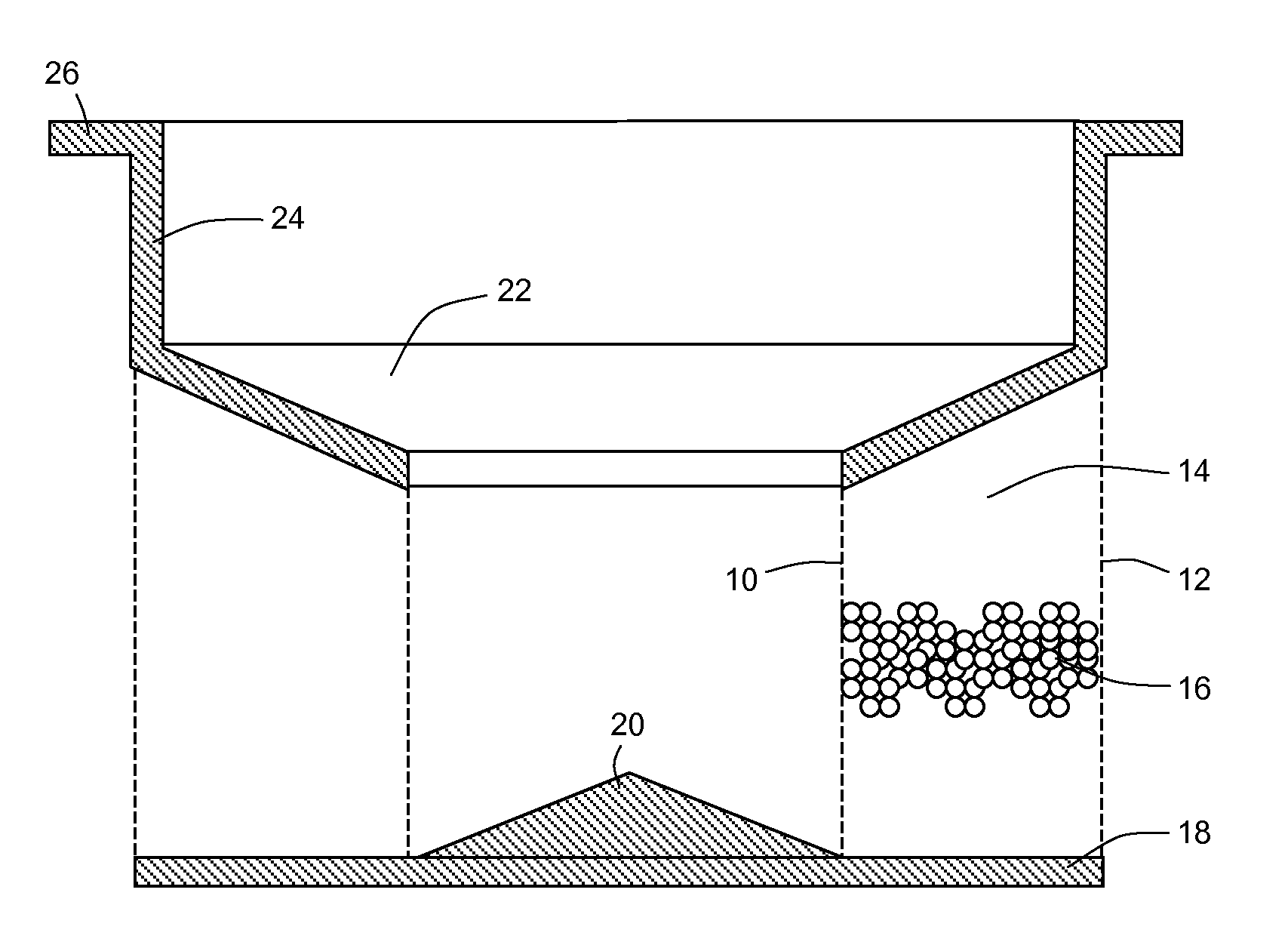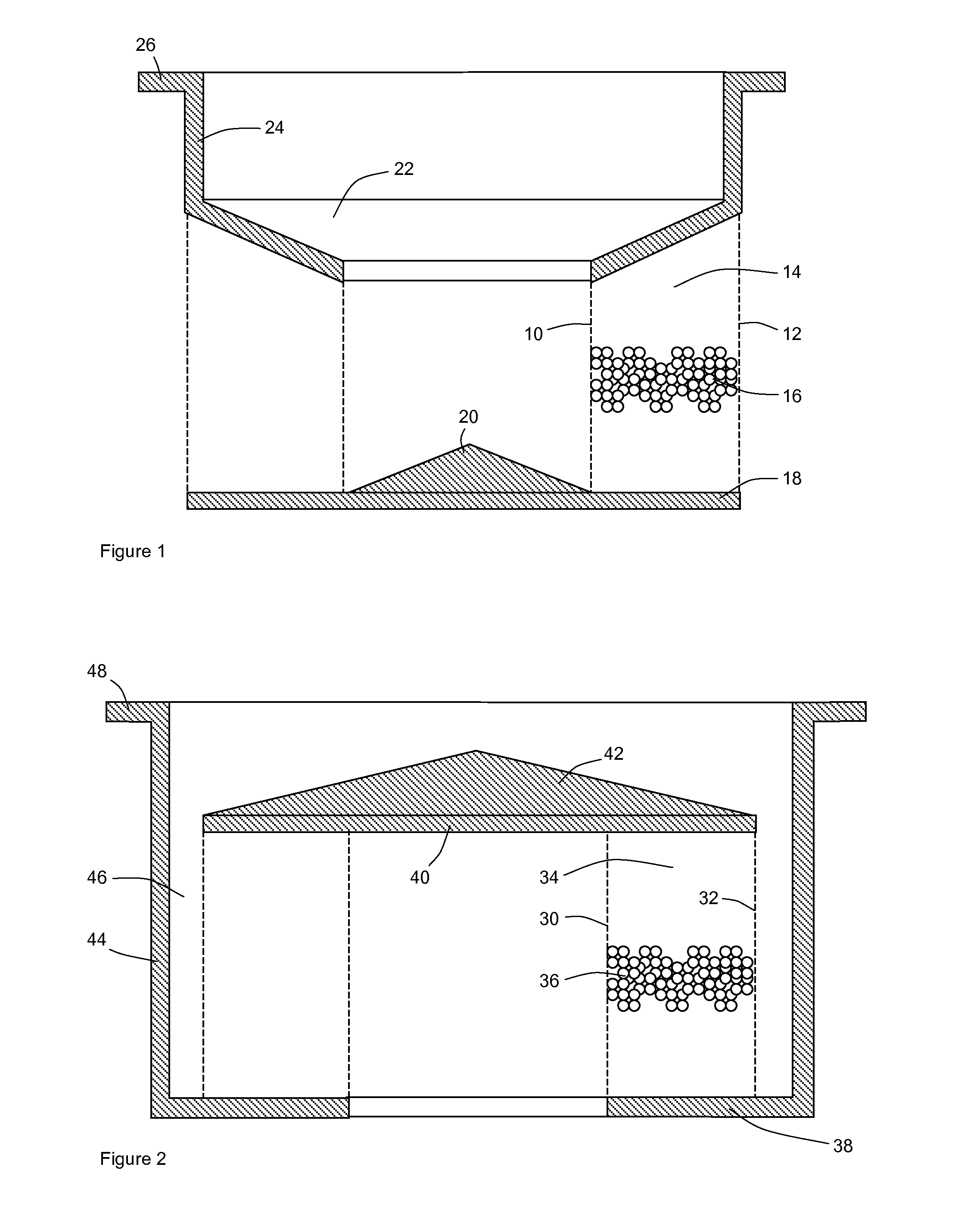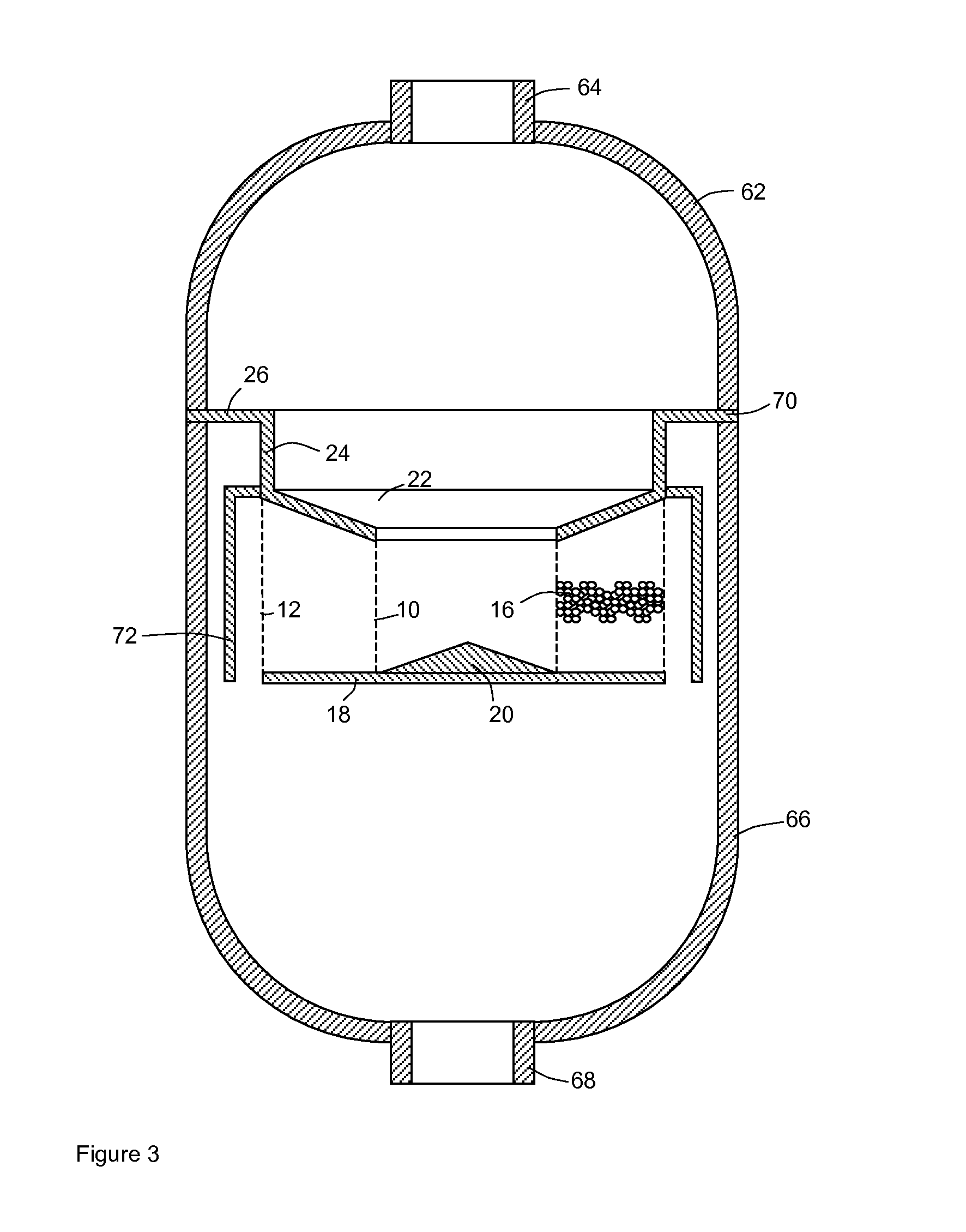Catalyst containment unit
a technology of catalyst containment and catalyst bed, which is applied in the direction of physical/chemical process catalysts, separation processes, nitrous oxides, etc., can solve the problems that the radial flow catalyst bed structure has not been used in ammonia oxidation vessels before, and achieves reduced pressure drop, increased operational flexibility, and reduced compression costs
- Summary
- Abstract
- Description
- Claims
- Application Information
AI Technical Summary
Benefits of technology
Problems solved by technology
Method used
Image
Examples
Embodiment Construction
[0029]In a conventional nitric acid plant, the number of gauzes employed depends on the pressure at which the process is operated. For example in a plant operating at low pressure, e.g. up to about 5 bar abs., typically 20, often 35-45, may be employed. The gauzes, which are normally circular, may be incorporated individually into the reactor or may be pre-formed into a pad comprising a number of gauzes that may be welded at their periphery. The pad may comprise a combination of woven and knitted or possibly non-woven gauzes whose elemental composition may be the same or different. If adjacent woven gauzes are present, to facilitate replacement, they are preferably arranged so that their warps or wefts are at an angle of 45° to each other. Angular displacement, suitably at 90°, may also be used between adjacent woven gauzes to reduce opportunities for gas channeling.
[0030]Catchment gauzes based on palladium are desirably used in ammonia oxidation plants to act as so-called “getters”...
PUM
| Property | Measurement | Unit |
|---|---|---|
| pressures | aaaaa | aaaaa |
| temperatures | aaaaa | aaaaa |
| pressures | aaaaa | aaaaa |
Abstract
Description
Claims
Application Information
 Login to View More
Login to View More - R&D
- Intellectual Property
- Life Sciences
- Materials
- Tech Scout
- Unparalleled Data Quality
- Higher Quality Content
- 60% Fewer Hallucinations
Browse by: Latest US Patents, China's latest patents, Technical Efficacy Thesaurus, Application Domain, Technology Topic, Popular Technical Reports.
© 2025 PatSnap. All rights reserved.Legal|Privacy policy|Modern Slavery Act Transparency Statement|Sitemap|About US| Contact US: help@patsnap.com



